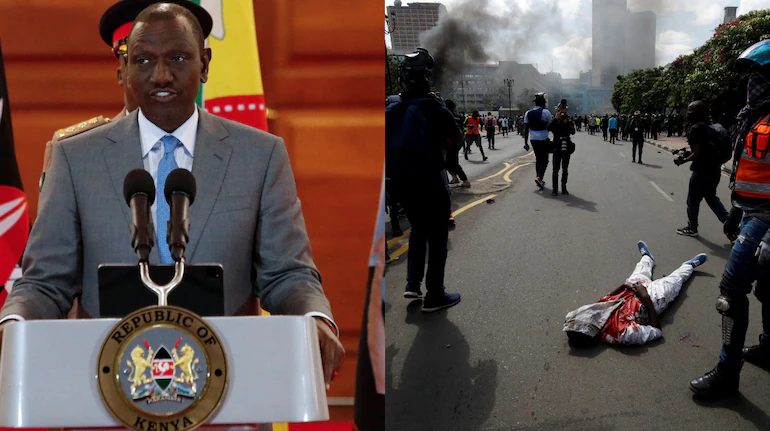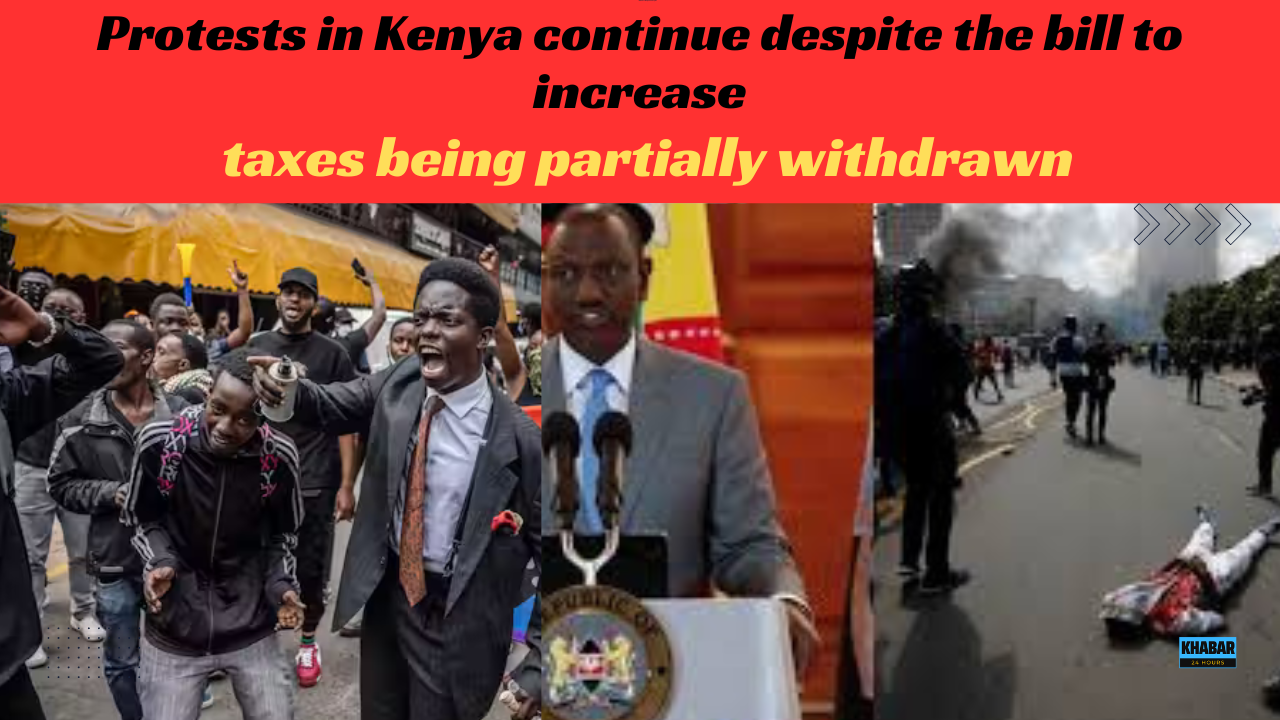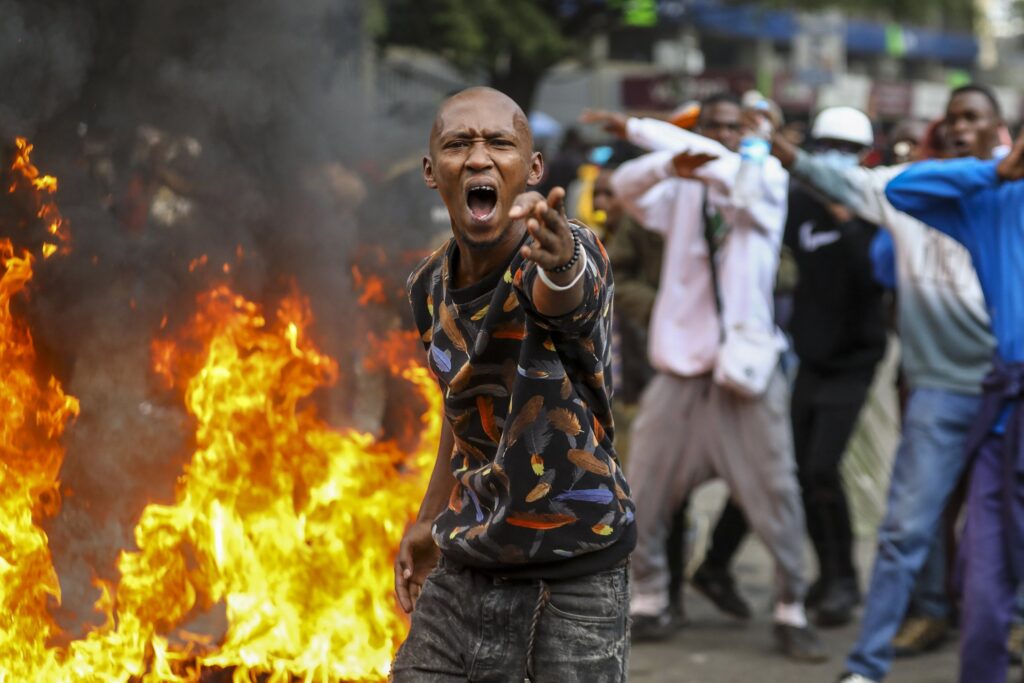Protests have erupted in Kenya due to the Finance Bill 2024, which suggests higher taxes including VAT on bread, mobile money taxes, and environmental levies. Amid deadly clashes, the government has backed down and pledged to initiate dialogue with the protestors.

Protests have erupted in Kenya against a contentious finance bill aimed at addressing the country’s high debt levels. President Ruto’s decision to withdraw the bill marks a significant reversal and a victory for demonstrators advocating for broader political reforms.
The Finance Bill 2024, initially proposed by the Kenyan government, intended to raise taxes on various essential goods and services. This included implementing a 16 percent value-added tax (VAT) on bread and increasing taxes on mobile money transfers, which are crucial to Kenya’s digital economy, as reported by the Indian Express.

Additionally, the bill proposed higher taxes on financial transactions and introduced a new annual vehicle ownership tax. These measures were designed to generate $2.7 billion amid Kenya’s substantial debt burden.
In addition, the Finance Bill introduced a new annual tax on vehicle ownership and imposed levies on environmentally harmful products such as plastics and diapers.
Kenya is grappling with a significant economic challenge as its public debt has surged to 68 percent of its gross domestic product (GDP), surpassing the recommended limit of 55 percent advised by the World Bank and the International Monetary Fund (IMF). The country’s annual revenue is under strain, with 37 percent of it allocated solely to servicing interest payments on this debt. To stabilize its economy, the IMF has advised Kenya to reduce its deficit and broaden its tax base, potentially opening avenues for future financial assistance.
The Finance Bill encountered swift opposition from Kenyans, who contended that the proposed taxes would further burden ordinary citizens already grappling with high living expenses. Activists and citizens mobilized protests under the slogan ‘7 Days of Rage’, calling for the bill’s complete withdrawal. Social media movements like #RejectFinanceBill2024 gained momentum, highlighting broad-based dissatisfaction.

Amid escalating tensions, protesters in Nairobi stormed the parliament building, leading to fires and prompting a heavy-handed response from security forces who deployed tear gas, water cannons, and in some instances, live ammunition, resulting in casualties. International observers and human rights organizations condemned the use of force against demonstrators.
In a significant reversal, President William Ruto responded to mounting pressure by announcing he would not sign the bill into law. He acknowledged public outcry and committed to engaging in dialogue with various stakeholders to address concerns, marking a substantial retreat for the government in the face of widespread opposition to the proposed tax hikes.
The events highlighted deep-seated frustrations with the government’s economic policies and its responsiveness to public demands. Despite the bill’s withdrawal, many Kenyans continue to call for broader political reforms and improved governance. The aftermath of the protests has sparked national discussions on fiscal policy, citizen engagement, and the leadership’s role in Kenya’s development.



